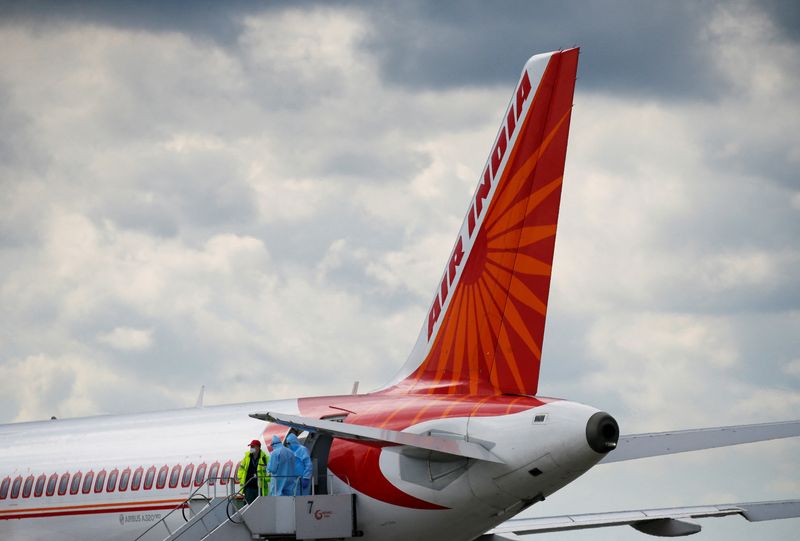By Aditi Shah and Tim Hepher
NEW DELHI (Reuters) -India dampened foreign airline hopes for more access to its airports on Tuesday, with its aviation minister urging domestic carriers to fly long-haul and help establish new hubs as it seeks to recapture control of Indian travel from foreign rivals.
It is also asking aerospace companies to step-up local production and will soon finalise rules to safeguard rights of lessors on repossession of jets, in a bid to level up with major global aviation markets, Jyotiraditya Scindia told Reuters.
"India is now at that inflection point," Scindia said during an interview at his office in New Delhi.
"We are going to see an explosion of air traffic in India in the years to come," he said, adding he wanted domestic carriers to look at international expansion with greater focus.
The South Asian nation is one of the fastest-growing aviation markets in the world where demand for air travel is outstripping the supply of planes, but the bulk of international traffic is captured by global carriers with efficient hubs.
Now, India wants to harness these economic gains for itself by boosting growth of its airlines and airports.
Air India last month placed a record order for 470 jets and is making an aggressive push in the international market. Domestic rival IndiGo is also in talks for a new order of more than 500 planes, Reuters reported earlier this month, even as it waits to take delivery of the same number from an older order.
Scindia said India was not looking at increasing air traffic quotas with Gulf states and instead wanted Indian carriers to offer non-stop long haul flights on larger planes. He said Air India's widebody plane order and IndiGo's twin-aisles to some destinations were signs that "transition" had begun.
India is also mobilising to handle the transportation needs of its population of 1.3 billion by building new airports in the country's remotest parts and expanding capacity at major ones.
Domestic and international passenger traffic through six major metro airports is expected to more than double to 420 million over the next five years and India's fleet is set to grow to over 2,000 planes from 700 today, Scindia said.
He is working with some airlines and Delhi airport to create a hub and spoke model in the capital that will allow seamless transition of passengers hopping off domestic flights and on to their international connections and vice versa.
"Today my hubs are in either the eastern border of my country or the western border of my country. With the scale that I have, I must create a hub within India," said Scindia.
But even with hundreds of new planes on order, and India's history of airline failures such as Kingfisher (LON:KGF) and Jet Airways, Scindia said he was not concerned this would lead to any oversupply because the country's economy, rapid urbanisation and underpenetrated air travel market would support growth.
"Earlier, airports and airplanes would only go to those cities that presented a great economic growth story to make the rationale for that investment. Today, it is airports and airlines that are determining economic growth," said the 52-year-old minister.
"That whole paradigm has changed."
